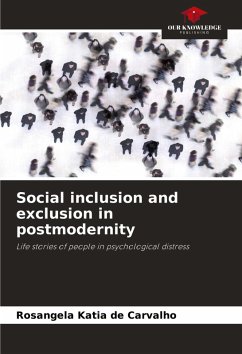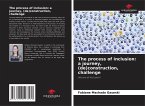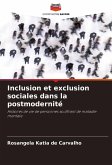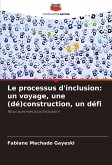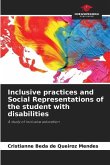The aim of this study was to describe and analyze the social inclusion-exclusion process in the life trajectories of people suffering from mental illness in post-modern times. Data was collected through semi-structured interviews at an income-generation project. Oral life history was used as a methodological reference and made it possible to understand individual stories, respecting their differences and their historical character. Seven collaborators took part in the study, but in this work there are six stories. The data was interpreted using content analysis. At the end of the analysis, the complexity of the issue was revealed, since social exclusion is not just about the physical segregation of people, but rather about a logic of segregation that goes beyond mental institutions. Stigma and prejudice act as barriers to social inclusion. Mental health care should prioritize interventions that promote empowerment, citizenship, autonomy, the creation of possibilities, the production of sociability and subjectivity and the production of meaning in life.
Bitte wählen Sie Ihr Anliegen aus.
Rechnungen
Retourenschein anfordern
Bestellstatus
Storno

